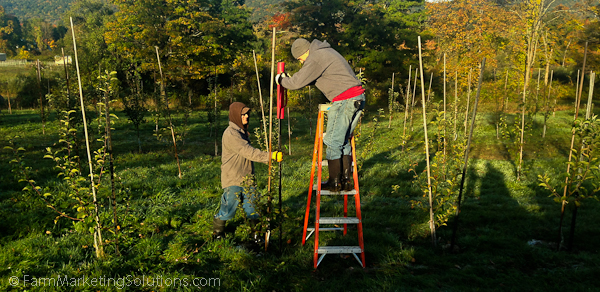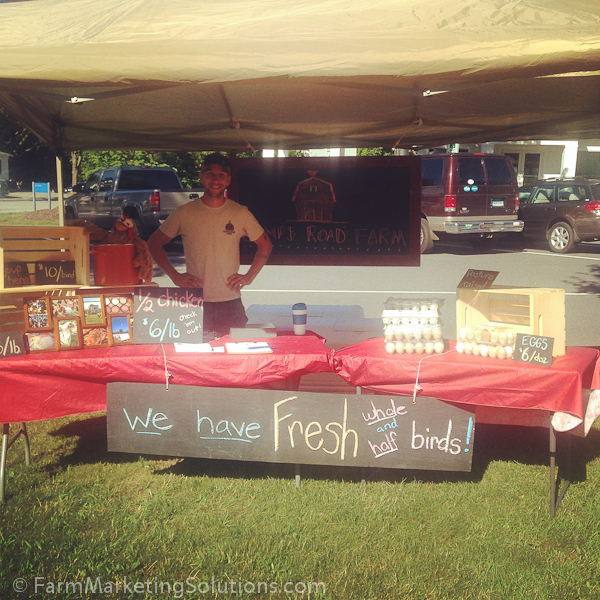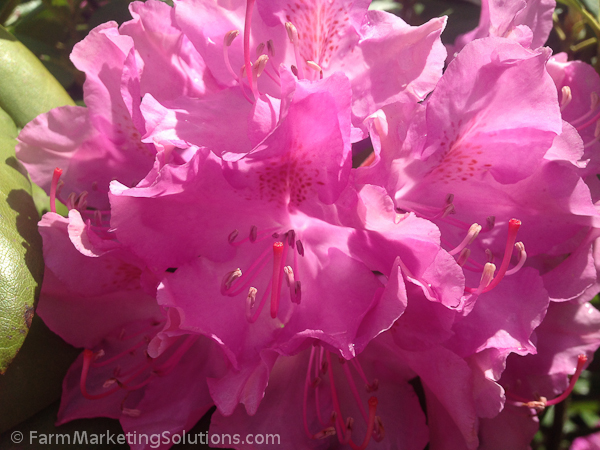GFP064: Successful online farm marketing in 2015
/We live in an increasingly digital age and as farmers we have a lot of options for how to market our farm online. Where do we focus? Where do we spend our time? At the end of the day, where do we make the investment? Today's podcast is not about registering on places like LocalHarvest.org or similar sites where we can get a posting that people can find. It is about actively engaging our customers so that once they find us they stay informed, engaged, and keep coming back. It takes a lot more effort to get a new customer than to keep a returning customer, but it still takes effort. I want to break it down into what I plan on doing this year. It is more simple than it may appear at first, and since it's my plan and I'm going to be (have been) acting on it, I am happy to share on FMS how it all works.
The way I see it your active online presence is separated into two groups, Primary and Secondary.
Primary:
Farm Website
Email List
Your Primary is your home base on the internet. "All roads lead to Rome." Every other presence, including your Local Harvest listing, should point back to your farm website. This is your opportunity to educate your customers on everything you are doing and to keep them coming back by continuing to add new content.
Your website should have details on what you grow, how your grow it, and where people can buy it. After that it is up to you as to how much detail you want to go into. The more the merrier as long as you keep it organized.
Your email list is your gateway into peoples homes and cell phones. An email can be a very private and important thing. People are always listening for that little bing that tells them they have a new message. If all the Social Networks in the world fail you will always be able to sell through your email list.
Secondary:
Facebook
YouTube
Instagram
This is the second layer of what you are doing online. These three are great for a couple of reasons.
Facebook is very approachable and there are a lot of people using it. It is a great place to get started with all of your farms' basic info and story. Even though the updates that Facebook has been rolling out has made it a little harder to reach your audience these days you still can reach people AND it links to just about every other network so cross promoting outside of Facebook is easy. Here you can post photos, videos, stories, articles, whatever you want that is relevant to you and your brand. If nothing else it is a good gateway drug to the world of Social Media.
YouTube has been really good for me. While my farms' YouTube page doesn't have a ton of views, the customers that go there because I included a link to a video in an email have come up to me and said how much they loved the video. It is a way to give people a tour of the farm without actually having to host them on farm. From the comfort of their own home people can see what you are doing, how you are doing it, and you have control over the whole interaction. With the Smartphones getting better at not only taking video, but sharing it to the web, uploading videos to YouTube is getting easier and easier.
Instagram for me is one thing, a means to an end. I cannot attribute many sale directly to Instagram, but I can indirectly. Let me explain. I have an Instagram account @foodcyclist. I have friends and family that follow me there. I also have other people involved with the farm that have their own Instagram accounts. The beautiful thing is that we can use the APP to take a photo, edit it, add a fun filter, and all upload it to the farms' Facebook page. The pictures we post get more engagement than anything else. Because it is so easy from my phone I use it as much as I can.
Farm Website Posts on FMS:
Everything you need to know to set up a farm website (free video tutorial)
Using Google Analytics to Measure Success With Your Farm Website
Farm Email List Posts:
How to start an email list (free tutorial)
Other useful links:
Take aways:
The world is getting increasingly digital. How are people going to find you online and what are they going to see?
If you had to start or focus on one thing this year online, what would it be? Let me know below!
Farm quote of the episode:
"That's my only goal. Surround myself with funny people, and make sure everyone has a good time and works hard." - Joe Rogan
--
Thanks for taking the time to listen in, and let me know what you think. You can leave a comment below, send me an e-mail, reach me on Facebook , or leave a 5 star rating in iTunes if you liked the show.




















































































